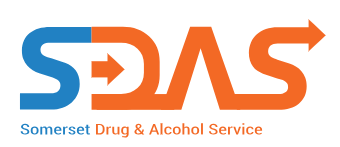Related guidance:
- A range of interventions is available to help them stop smoking. Explain how to access them and refer people to stop-smoking support if appropriate.
- Ensure the following are accessible to adults who smoke:
• behavioural interventions:
- behavioural support (individual and group)
- very brief advice
• medicinally licensed products:
- bupropion
- nicotine replacement therapy – short and long acting
- varenicline (unavailable in the UK, see supply disruption alert below)
• nicotine-containing e-cigarettes
• Allen Carr’s Easyway in-person group seminar. - Consider NRT for young people aged 12 and over who are smoking and dependent on tobacco. If this is prescribed, offer it with behavioural support.
- Do not offer varenicline or bupropion to people under 18.
- Offer behavioural support to people who smoke regardless of which option they choose to help them stop smoking, unless they have chosen the Allen Carr Easyway in-person group seminar. Explain how to access
this support.
- Discuss with people which options to use to stop smoking, taking into account:
• their preferences, health and social circumstances
• any medicines they are taking
• any contraindications and the potential for adverse effects
• their previous experience of stop-smoking aids.
- Advise people (as appropriate for their age) that the following options, when combined with behavioural support, are more likely to result in them successfully stopping smoking:
• a combination of short-acting and long-acting NRT
• nicotine-containing e-cigarettes. - Advise people (as appropriate for their age) that the options that are less likely to result in them successfully stopping smoking, when combined with behavioural support, are:
• bupropion
• short-acting NRT used without long-acting NRT
• long-acting NRT used without short-acting NRT. - For adults, prescribe or provide bupropion or NRT before they stop smoking:
• For bupropion agree a quit date set within the first 2 weeks of treatment, reassess the person shortly before the prescription ends.
• For NRT agree a quit date and ensure the person has NRT ready to start the day before the quit date. - Emphasise that:
• most smoking-related health problems are caused by other components in tobacco smoke, not by the nicotine
• any risks from using medicinally licensed nicotine-containing products or other stop-smoking pharmacotherapies are much lower than those of smoking. - Explain how to use medicinally licensed nicotine-containing products correctly. This includes ensuring people know how to achieve a high enough dose to:
• control cravings
• prevent compensatory smoking
• achieve their goals on stopping or reducing the amount they smoke. - Advise people using short-acting NRT to replace each cigarette with the product they are using, for example a lozenge or piece of gum. Ideally, they should use this before the usual time they would have had the cigarette, to allow for the slower nicotine release from these products.
Advice on nicotine-containing e-cigarettes
These recommendations are for people providing stop-smoking support or advice to adults.
- Give clear, consistent and up-to-date information about nicotine-containing e-cigarettes to adults who are interested in using them to stop smoking (for example, see the NCSCT e-cigarette guide and Public Health England’s information on e-cigarettes and vaping).
- Advise adults how to use nicotine-containing e-cigarettes. This includes explaining that:
• e-cigarettes are not licensed medicines but are regulated by the Tobacco and Related Products Regulations
• there is not enough evidence to know whether there are long-term harms from e-cigarette use
• use of e-cigarettes is likely to be substantially less harmful than smoking
• any smoking is harmful, so people using e-cigarettes should stop smoking tobacco completely.
Discuss:
• how long the person intends to use nicotine-containing e-cigarettes for
• using them for long enough to prevent a return to smoking and
• how to stop using them when they are ready to do so. - Ask adults using nicotine-containing e-cigarettes about any side effects or safety concerns that they may experience. Report these to the MHRA Yellow Card scheme, and let people know they can report side effects directly.
- Explain to adults who choose to use nicotine-containing e-cigarettes the importance of getting enough nicotine to overcome withdrawal symptoms, and explain how to get enough nicotine.
Varenicline for smoking cessationTechnology appraisal guidance (TA123 July 2007)
- For harmful drinkers (high-risk drinkers) and people with mild alcohol dependence, offer a psychological intervention (such as cognitive behavioural therapies, behavioural therapies or social network and environment-based therapies) focused specifically on alcohol-related cognitions, behaviour, problems and social networks.
• For service users who typically drink over 15 units of alcohol per day, and/or who score 20 or more on the AUDIT, consider offering:
- an assessment for and delivery of a community-based assisted withdrawal, or
- assessment and management in specialist alcohol services if there are safety concerns about a community-based assisted withdrawal.
• After a successful withdrawal for people with moderate and severe alcohol dependence, consider offering acamprosate or oral naltrexone in combination with an individual psychological intervention (cognitive behavioural therapies, behavioural therapies or social network and environment-based therapies) focused specifically on
alcohol misuse.
• For children and young people aged 10 to 17 years who misuse alcohol offer:
- individual cognitive behavioural therapy for those with limited comorbidities and good social support
- multicomponent programmes (such as multidimensional family therapy, brief strategic family therapy, functional family therapy or multisystemic therapy) for those with significant comorbidities and/or limited social support.
Interventions for conditions comorbid with alcohol misuse.
• For people who misuse alcohol and have comorbid depression or anxiety disorders, treat the alcohol misuse first as this may lead to significant improvement in the depression and anxiety. If depression or anxiety continues after 3 to 4 weeks of abstinence from alcohol, undertake an assessment of the depression or anxiety and consider referral and treatment in line with the relevant NICE guideline for the particular disorder. See the NICE guidelines on depression in adults: treatment and management, generalised anxiety disorder and panic disorder in adults: management and antisocial personality disorder: prevention and management. Also see NICE’s guideline on coexisting severe mental illness and substance misuse: community health and social care services.
Somerset Drug and Alcohol Service
Drug misuse in over 16s: opioid detoxification Clinical guideline (CG52 July 2007)
- Methadone or buprenorphine should be offered as the first-line treatment in opioid detoxification. When deciding between these medications, healthcare professionals should take into account:
• whether the service user is receiving maintenance treatment with methadone or buprenorphine; if so, opioid detoxification should normally be started with the same medication
• the preference of the service user.
• Ultra-rapid detoxification under general anaesthesia or heavy sedation (where the airway needs to be supported) must not be offered. This is because of the risk of serious adverse events, including death. - Staff should routinely offer a community-based programme to all service users considering opioid detoxification. Exceptions to this may include service users who:
• have not benefited from previous formal community-based detoxification
• need medical and/or nursing care because of significant comorbid physical or mental health problems
• require complex polydrug detoxification, for example concurrent detoxification from alcohol or benzodiazepines
• are experiencing significant social problems that will limit the benefit of community-based detoxification
For Methadone and Buprenorphine, see NHS Somerset Formulary Pain
- Naltrexone is recommended as a treatment option in detoxified formerly opioid-dependent people who are highly motivated to remain in an abstinence programme.
- Naltrexone should only be administered under adequate supervision to people who have been fully informed of the potential adverse effects of treatment. It should be given as part of a programme of supportive care.
- The effectiveness of naltrexone in preventing opioid misuse in people being treated should be reviewed regularly. Discontinuation of naltrexone treatment should be considered if there is evidence of such misuse.
| Therapeutic Area | Formulary Choices | Cost for 28 (unless otherwise stated) | Rationale for decision / comments |
|---|---|---|---|
| Nicotinic receptor agonists | NHS Somerset classify Nicotine replacement therapy as Black (not recommended). | First-line option to aid smoking cessation in combination with motivational support in nicotine-dependent patients. | |
| Antidepressants, serotonin and noradrenaline re-uptake inhibitors | Cases of serotonin syndrome have been identified in associated with bupropion, especially in overdose or when bupropion is administered with other drugs with a serotonergic effect. See MHRA (November 2020) for Bupropion (Zyban): risk of serotonin syndrome with use with other serotonergic drugs. | ||
| Bupropion | 150mg modified-release tablet: £41.76 (60) | Second-line option to aid smoking cessation in combination with motivational support in nicotine-dependent patients. Adult: Initially 150 mg daily for 6 days, then 150 mg twice daily (max. per dose 150 mg), minimum 8 hours between doses; period of treatment 7–9 weeks, start treatment 1–2 weeks before target stop date, discontinue if abstinence not achieved at 7 weeks, consider maximum 150 mg daily in patients with risk factors for seizures; maximum 300 mg per day. Elderly: 150 mg daily for 7–9 weeks, start treatment 1–2 weeks before target stop date, discontinue if abstinence not achieved at 7 weeks; maximum 150 mg per day. Bupropion is contraindicated in patients with a current seizure disorder or any history of seizures, those undergoing abrupt withdrawal from alcohol or any medicinal product known to be associated with risk of seizures on withdrawal (in particular benzodiazepines and benzodiazepine-like agents) and in patients with a current or previous diagnosis of bulimia or anorexia nervosa. Do not offer bupropion to people under 18. Do not offer bupropion to pregnant or breastfeeding women. |
|
| Opioid receptor antagonists | Naltrexone | 50mg tablet: £74.75 | NHS Somerset classify as an Amber drug for adjunct to prevent relapse in formerly opioid-dependent patients (who have remained opioid-free for at least 7–10 days). Somerset Drugs and Alcohol Service (SDAS) should provide guidance on dose, duration and be available for contact should any issues arise as per traffic light guidance. Adult: Initially 25 mg daily, then increased to 50 mg daily, total weekly dose may be divided and given on 3 days of the week for improved compliance (e.g. 100 mg on Monday and Wednesday, and 150 mg on Friday); maximum 350 mg per week. Only generic naltrexone, Nalorex®, and Opizone®are licensed for the treatment of opioid dependence. Adepend® is not licensed for treatment of opioid dependence. |
| as Adepend® | 50mg tablet: £47.43 | NHS Somerset classify as an Amber drug, initiated by Somerset Drugs and Alcohol Service (SDAS) for adjunct to prevent relapse in formerly alcohol-dependent patients as per traffic light guidance. Adult: 25 mg once daily on the first day, then increased if tolerated to 50 mg daily. |
|
| NHS Somerset classify Naltrexone as Red (specialist prescribing only) for treatment of multiple sclerosis (unlicensed use) and as Black (not recommended) for all other indications as per Traffic light guidance. | |||
| NHS Somerset classify Nalmefene for alcohol dependence as Red (specialist prescribing only) as per Traffic light guidance. | |||
| Gamma-aminobutyric acid analogues and derivatives | Acamprosate | 333mg gastro-resistant tablet: £21.79 (168) | For maintenance of abstinence in alcohol dependent patients. Adult: 18–65 years (body-weight up to 60 kg) 666 mg once daily at breakfast and 333 mg twice daily at midday and at night. Adult: 18–65 years (body-weight 60 kg and above) 666 mg 3 times a day. |



